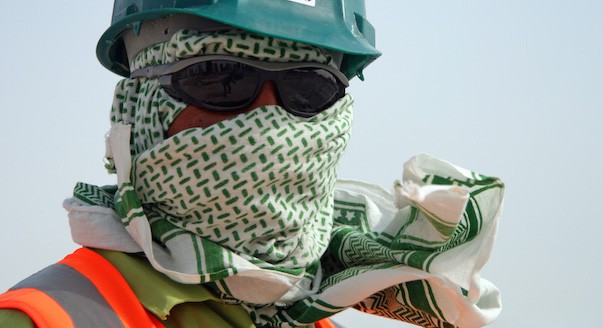Ahead of the World Cup in November, pressure is on for the Qatari government to step up protections for the two million migrants working in the country.
In an article for Forbes, Michael Posner, director of the NYU Stern Center for Business and Human Rights, reviews the state of play for labor rights in Qatar and urges high-profile companies and individuals involved in the World Cup to call for immediate change.
Since being named the next World Cup host in 2010, Qatar has invested $200 billion in new infrastructure, including eight stadiums, an airport, a port and over 100 hotels. These construction projects have largely been powered by the country’s migrant workers, who mostly come from India, Nepal and Bangladesh.
More than 6,500 migrant workers allegedly died in the decade after Qatar was selected to host the World Cup. These deaths, reported in February 2021 by The Guardian, were said to be due to heatstroke, falls and “natural causes”. Although the government denies this claim, a lack of transparency around the registration and investigation of such deaths makes it impossible to verify.
International pressure has resulted in some positive steps from Doha. Five years ago, the government partnered with the International Labor Organization (ILO) to improve labor laws and standards. The ILO’s mandate spans a wide range of areas, including wage payment, health and safety, recruitment processes, and the replacement of the notorious kafala sponsorship system.
The Ministry of Labor made promises to make substantial reforms to the kafala system, ensuring the protection of migrant workers. Last year, we were pleased to see that the Qatari government had introduced new laws to reform the kafala system.
These reforms allow employees to leave undesirable jobs and freely seek employment elsewhere to avoid exploitation, receive better monthly minimum wage and working conditions.
But, several months later, full implementation is still lacking. Activists and lawyers working on the ground say that a lack of sufficient resources and the sheer volume of cases is the real cause of the lag for the new law.
Freedom United launched a global campaign, urging Qatari authorities to deliver on the critical reforms they promised and end forced labor. Help improve the working conditions of hundreds of thousands of migrant workers in Qatar.



